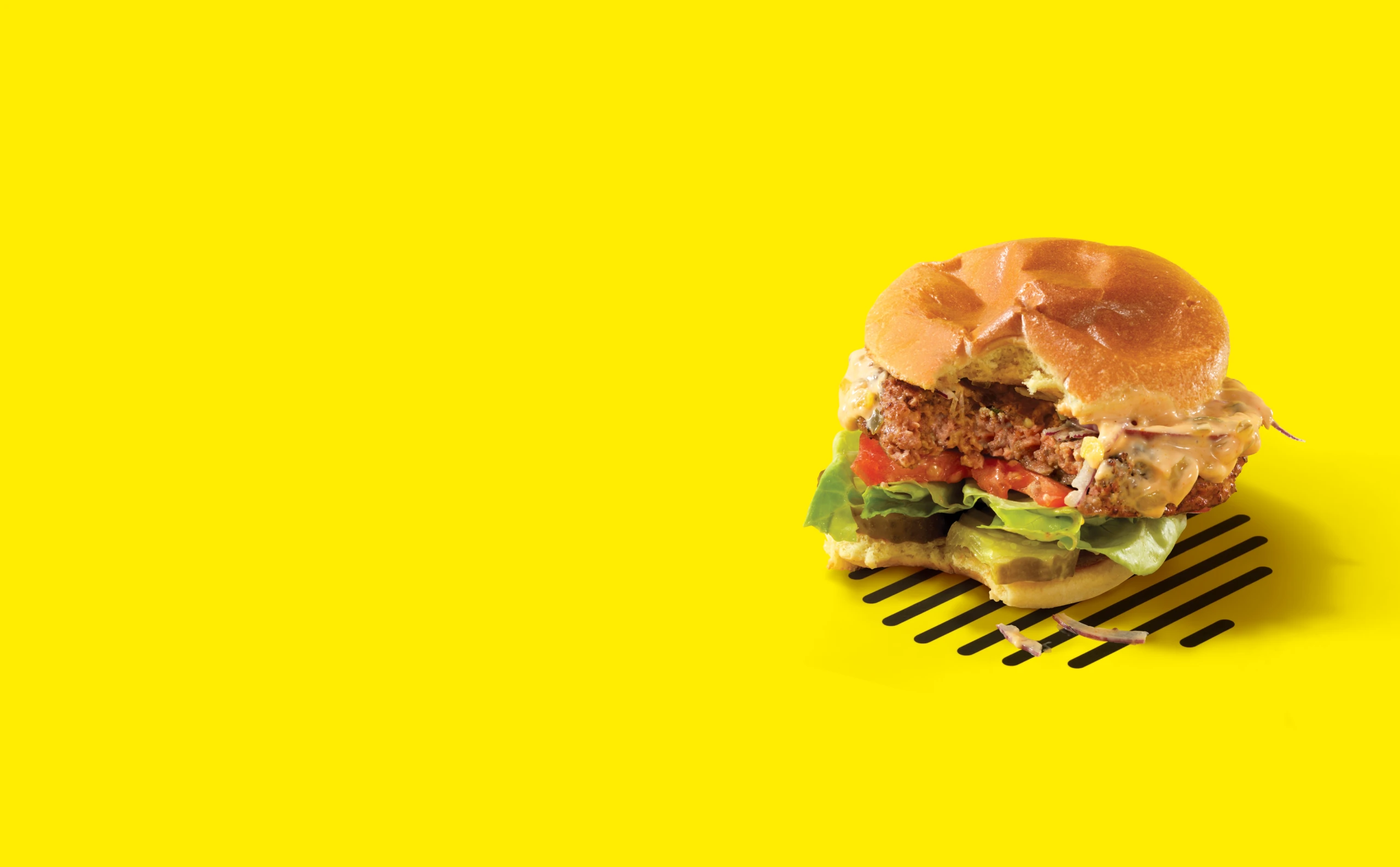LGBTQ+ Chef Traci des Jardins is pioneering a movement for more sustainable food systems
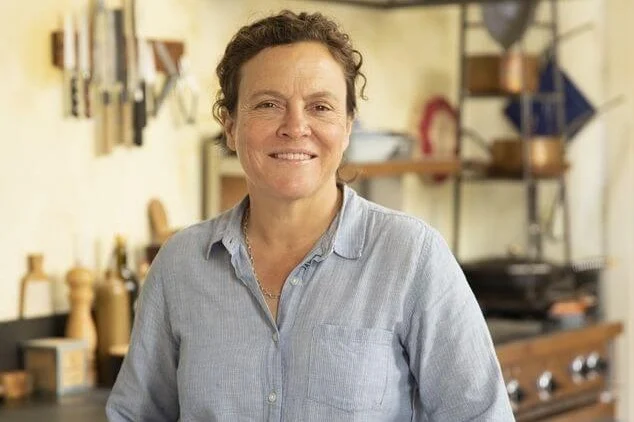
Traci Des Jardins is an internationally renowned chef who has earned numerous accolades throughout her career. From launching acclaimed restaurants to winning multiple awards from organizations like the James Beard Foundation and participating in TV shows like Top Chef: Masters, she is a culinary force to be reckoned with.
Des Jardins is also an environmental activist and one of the first chefs to ever put Impossible™ Burger on her menu. In honor of Pride Month, we’re highlighting Traci’s journey and sharing why she is so passionate about bringing Impossible™ products to the world.
IF: You’ve had an illustrious career in the food industry. How did it begin?
TDJ: My grandparents taught me how to cook and inspired my passion for food. When I turned 17, I started working in competitive, high end kitchens like Joachim Splichal’s 7th Street Bistro. That inspired me to move to France, where I apprenticed with chefs like Michel and Pierre Troisgros, Alain Senderens, Alain Ducasse, and Alain Passard.
When I returned to the United States, I worked at a few high end restaurants in New York and Los Angeles until settling in San Francisco, when I opened Jardiniere, Mijita Cocina Mexicana, Manzanita and Public House. I’ve been there ever since.
You’re a Culinary Advisor to Impossible Foods and contributed to Impossible™: The Cookbook. What inspired you to join our mission?
I’ve always been passionate about the environment and concerned with what’s happening in our world. Sustainability is also the defecto mindset in San Francisco and a large part of our community. However, one of the biggest issues with sustainable food has always been scale and getting local and sustainable foods to more people.
When I was introduced to Pat Brown (CEO of Impossible Foods) and presented with the product and vision for the company, I was stunned by the idea that we could create scalable impact with Impossible™ meat made from plants. Not only would it address environmental issues, but it could also provide a sustainable food supply for a growing population. I had been looking for a solution like this for a long time, so it was really compelling to me that we could create that impact on a larger scale.
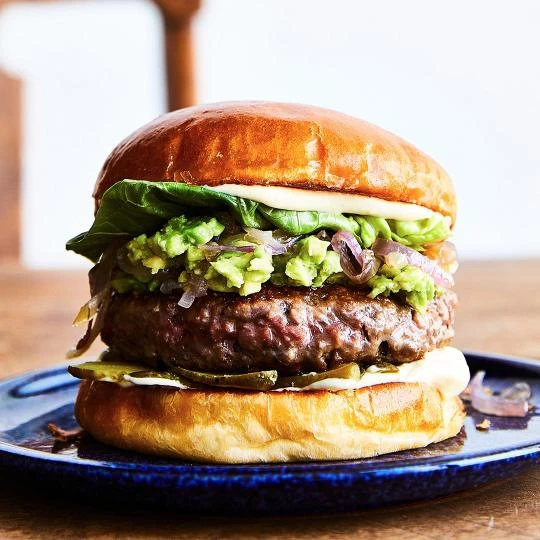
Impossible™ Jardiniere Burger recipe from Impossible™: The Cookbook(opens in a new tab)
I came on board very early on, so I had a lot of contact with the people doing the heavy lifting in the beginning of the company. It was such inspired work that it was easy for me to fall into it. Impossible Burger just blew my mind -- I had never seen anything so revolutionary in a sense of innovation. Ultimately what keeps me excited and passionate about the product is its versatility and all the possibilities it provides me as a chef. I also think that the R&D team at Impossible Foods is an inspired group of people. I’m so excited to see where the company goes & the wonderful new products on the horizon.
How did the chef community initially react to Impossible Burger?
Chefs and consumers are now familiar with plant-based meat, but in the beginning it was a totally new concept -- we didn’t even know what to call it! We had to create the language and describe the product before it launched, which was super challenging because no one had ever seen anything like it before.
I was part of the team that took Impossible Burger to the East Coast and exposed it to chefs like David Chang. There was a small group of naysayers, but overall the chef community responded very quickly. This was really important to me because I knew that it was revolutionary, but coming from the West Coast, I was worried that I was in a bubble.
There’s this magic moment that occurs when you cook Impossible Burger for the first time -- it captures your palette and sparks your imagination.
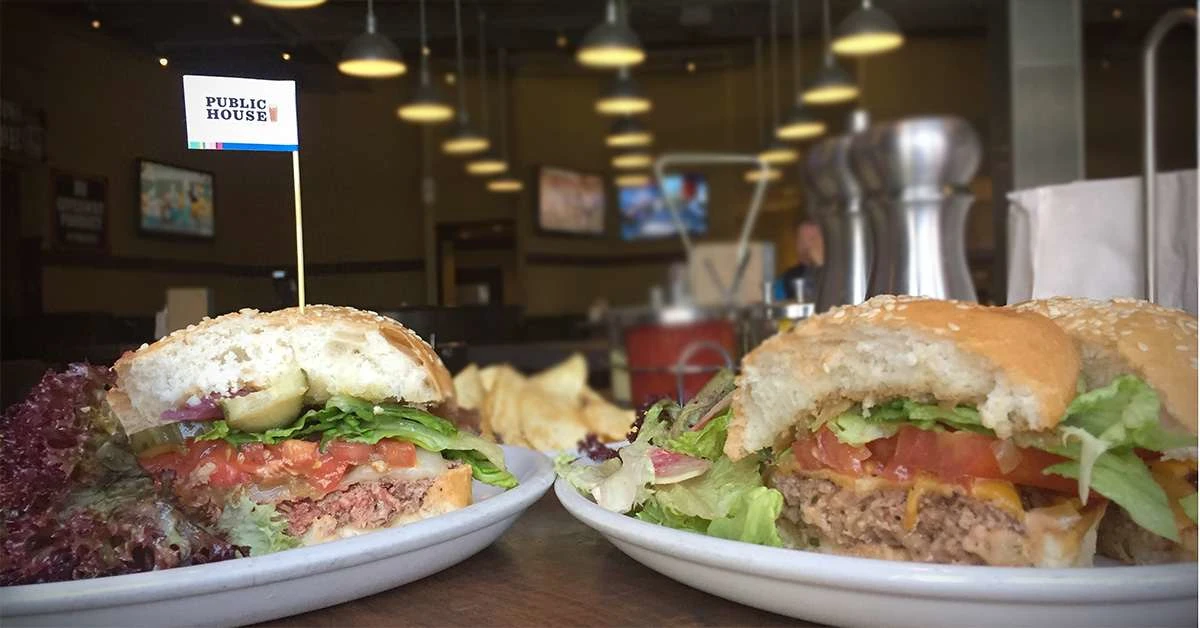
Impossible Burger served next to a beef burger at Public House
Initially I had colleagues ask if I was crazy, only to completely change their minds when they cooked a sample of Impossible Burger. When they actually worked with the product, they couldn’t believe it cooked and sizzled like meat! It was really cool to see how much it blew people’s minds. It’s easy to forget what a radical impact it created because the category is more known and understood now.
Where is the future of meat heading? Do you see a world without the need for animal protein?
Even though I’d like to think we’ll see animals taken out of the food system someday, I’m skeptical. Right now it’s more important to focus on giving people additional options that can actually impact climate change.
However, I do think we’re at an interesting moment with the next generation. The first time you tell a child where the meat they’re eating comes from, they’re horrified -- you have to convince them that this is how humans eat. I’d like to imagine a future where we don’t have to have that dialogue, but rather there are so many other options that they can make that choice for themselves
What has your experience as an LGBTQ+ chef been?
I’ve always been open about my sexuality, but it’s never been a huge focus or come into play much because of my career. I’ve always worked in restaurants with super professional & serious atmospheres, so we didn't talk about our personal lives -- our focus was more on the food we were making and the creative process. Chefs have such a strange lifestyle and we live differently than anyone else out there, so there aren’t a lot of opportunities to bring your personal life into what you do.
However if you look at the culinary landscape, many top tier female chefs are lesbian identified. If you compare the percentage of lesbian female chefs with the overall population, it’s much higher than average 3-5%. I think that’s super interesting.
If you look at the culinary landscape, many top tier female chefs are lesbian - that’s really interesting to me.
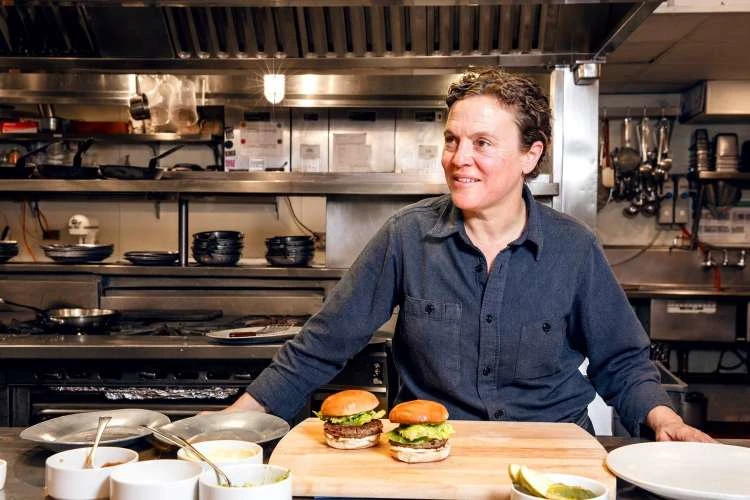
Chef Traci cooking Impossible Burger at her restaurant
Do you think the next generation of LGBTQ+ chefs will have the same experience?
The current matrix in restaurants has really diversified -- in the first 15 years of my career, it was straight male dominated. I’ve often thought being a lesbian was easier in that context because my colleagues and I weren’t interested in each other, which made it easier to work. I’d like to think that things have changed, and in some ways they have. But there are still a lot of things we need to do in the world to make sure the workplace is safe and people are treated equally.
What advice would you give to queer chefs looking to follow in your footsteps?
Be authentic to who you are and have passion for what you’re doing.There were a lot of moments in my career that weren’t easy. Cooking is a physically and mentally demanding field, so you need to have tremendous passion to get the knowledge and experience you want to have. When I moved to France, I was the only woman in a group of 25 men. It was really challenging, but it was an incredible journey and I couldn’t have learned those lessons anywhere else.
